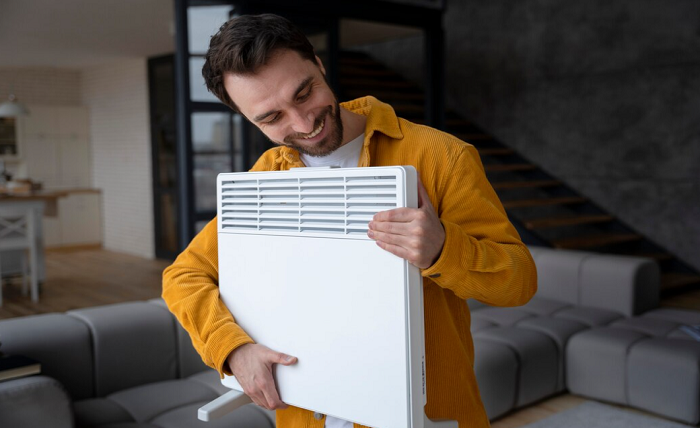An air filter captures and removes airborne particles, boosting indoor air quality. This component prevents dust and debris from entering the system, which clogs the unit, reduces efficiency, and leads to repairs. During heating repair, a technician can inspect and replace your air filter to boost functioning. Here are factors that determine how often air filters can be changed:
Table of Contents
Filter Type and Quality
The type of air filter you use determines how often you should change it. Furnace filters come in various types, including fiberglass, pleated, electrostatic, HEPA, and activated carbon. Those filters with higher Minimum Efficiency Reporting Value (MERV) ratings are more efficient but may need replacement more frequently. Filters with high MERV ratings capture smaller particles, which can clog the filter more quickly, requiring constant changing.
Fiberglass filters have low MERV ratings and must be replaced after a few months. Pleated filters have a higher MERV rating and may need more frequent replacement. Some electrostatic filters are washable and reusable, while others may be disposable, lasting a few months. HEPA filters last for several months compared to other air filters. MERV doesn’t rate activated carbon filters, but they require changing after a few months.
Filter Size
The size of an air filter determines its surface area, which impacts its ability to capture particles from the air. Larger filters have a greater surface area, allowing them to trap more airborne contaminants. This means they can hold more dust, dirt, and particles before becoming clogged and requiring replacement or cleaning.
Smaller air filters can clog more easily, prompting a technician to change them during heating repair. With a larger filter, you won’t need to check, change, or clean it as often as smaller filters. This can benefit commercial and industrial settings where maintenance resources can be limited.
Environmental Conditions
The air quality and environmental conditions in your home or the location where the filter is used can impact replacement frequency. If you live in an area with a high pollen count, the air filters may become saturated with allergens. Dusty environments, like those near construction sites, deserts, or unpaved roads, can load air filters with dust and particulate matter quickly.
In a smoking environment, filters may need to be changed more regularly because smoking indoors can reduce a filter’s lifespan. Homes with pets, particularly those that shed fur and dander, may experience faster filter clogging. Changing the air filter can manage contaminants within a home and reduce allergic reactions. Frequent filter changes can also prevent reduced airflow and maintain efficient operation.
Usage
If you use your heating system year-round, your air filter might need to be changed more frequently. The constant operation of the HVAC system means that the filter continuously filters the air which results in a quicker buildup of particles and contaminants in the filter, reducing its effectiveness over time.
For those who only use their heating system during certain seasons, the filter can last longer. If you use the system during the winter for heating, you can expect the filter to last closer to the recommended replacement intervals. The number of people living in the household can influence filter replacement frequency. A larger household with more occupants may produce more indoor air contaminants and require frequent filter changes.
Schedule an Appointment for Heating Repair
The frequency of changing air filters in your heating system depends on usage, filter size, environmental conditions, and filter type. A qualified technician can inspect your air filter every few months and replace it to restore efficiency. Regular filter replacement helps maintain good air quality, reduce energy consumption, and prolong the life of your equipment. Book an appointment for heating repair.
